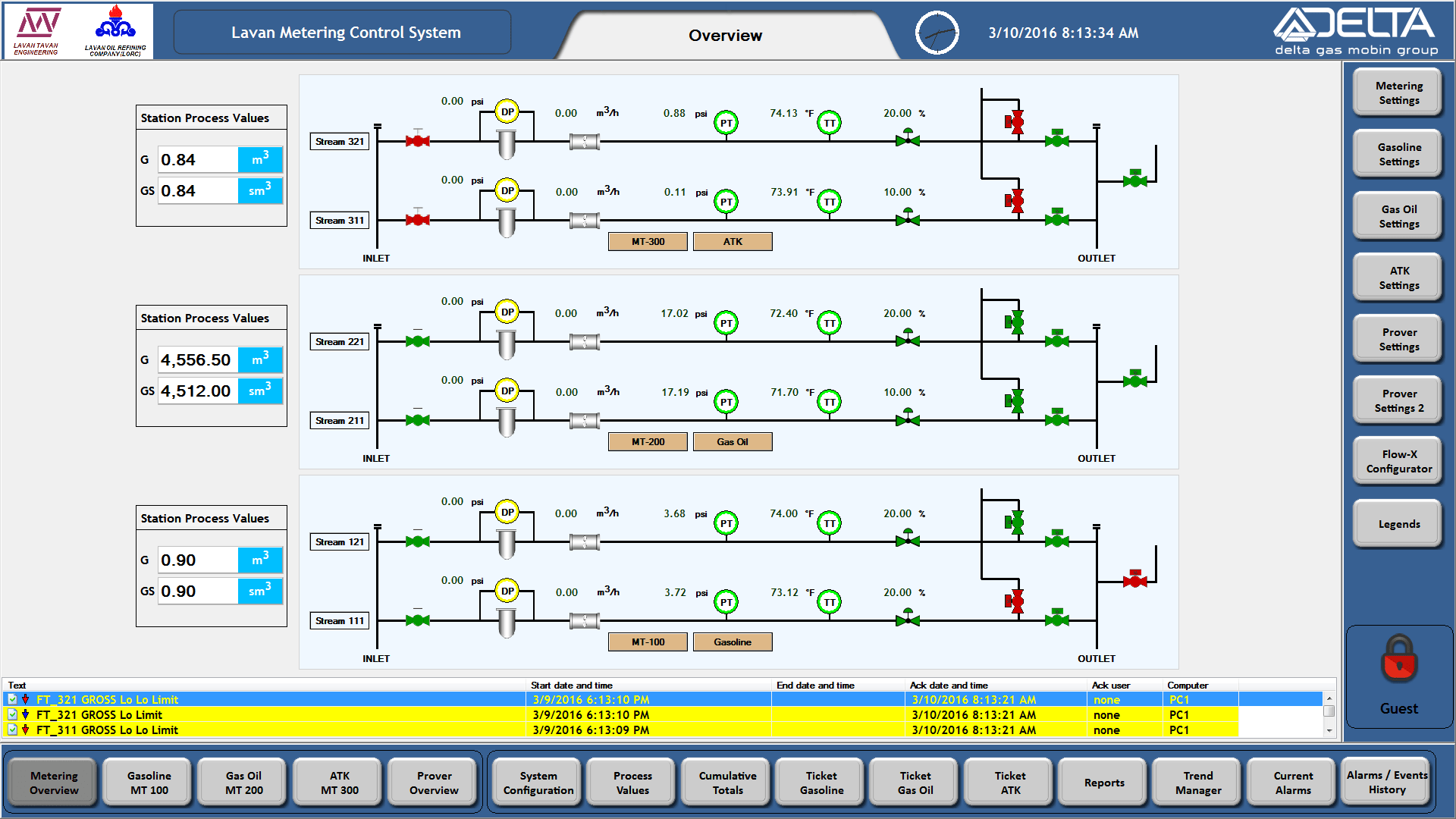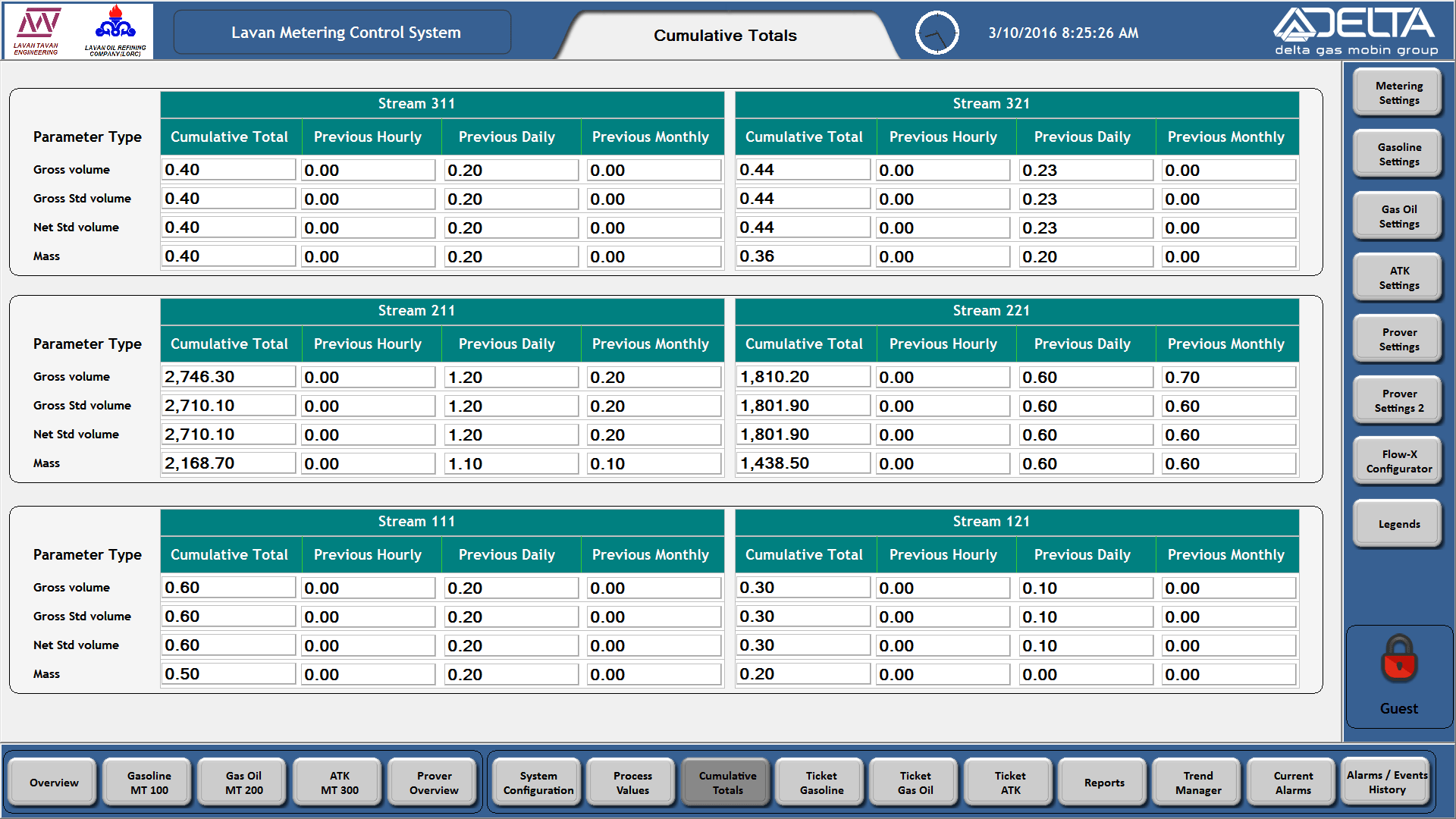Control Systems
At the heart of every metering skid lies a set of advanced control and monitoring systems that ensure the safe, efficient, and accurate operation of the equipment. These systems provide engineers and operators with complete control over complex industrial processes.
The Distributed Control System (DCS) is responsible for the precise management and control of various sections of a station. Using local controllers, the DCS receives input data from sensors such as flow meters, pressure transmitters, and temperature transmitters, processes this information, and sends the necessary commands to control valves and other equipment, maintaining the process under optimal conditions. This system is ideal for continuous and complex processes found in refineries, petrochemical plants, and power stations.
In addition to the DCS, SCADA (Supervisory Control and Data Acquisition) focuses primarily on remote data collection and visualization. SCADA is particularly suitable for monitoring wide-area processes, such as pipeline networks and transmission facilities. It allows managers to monitor overall system performance remotely, review alarms, and generate analytical reports.
Monitoring systems, as an integral part of both DCS and SCADA, provide visual display of key process information, including measured values, equipment status, and alarms. These displays present data through charts and user-friendly dashboards, enabling operators to gain a deep understanding of the process and make rapid, informed decisions to maintain both safety and operational efficiency.






